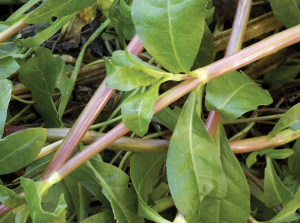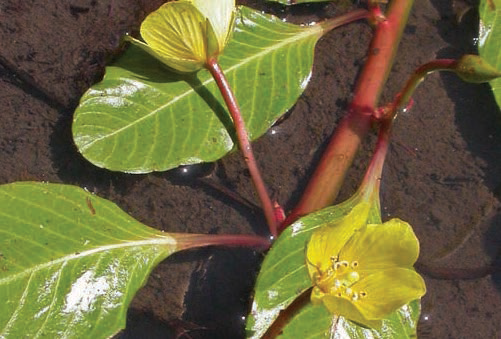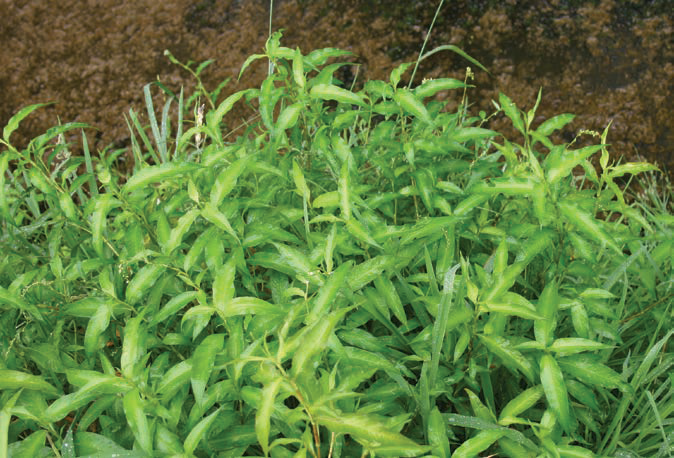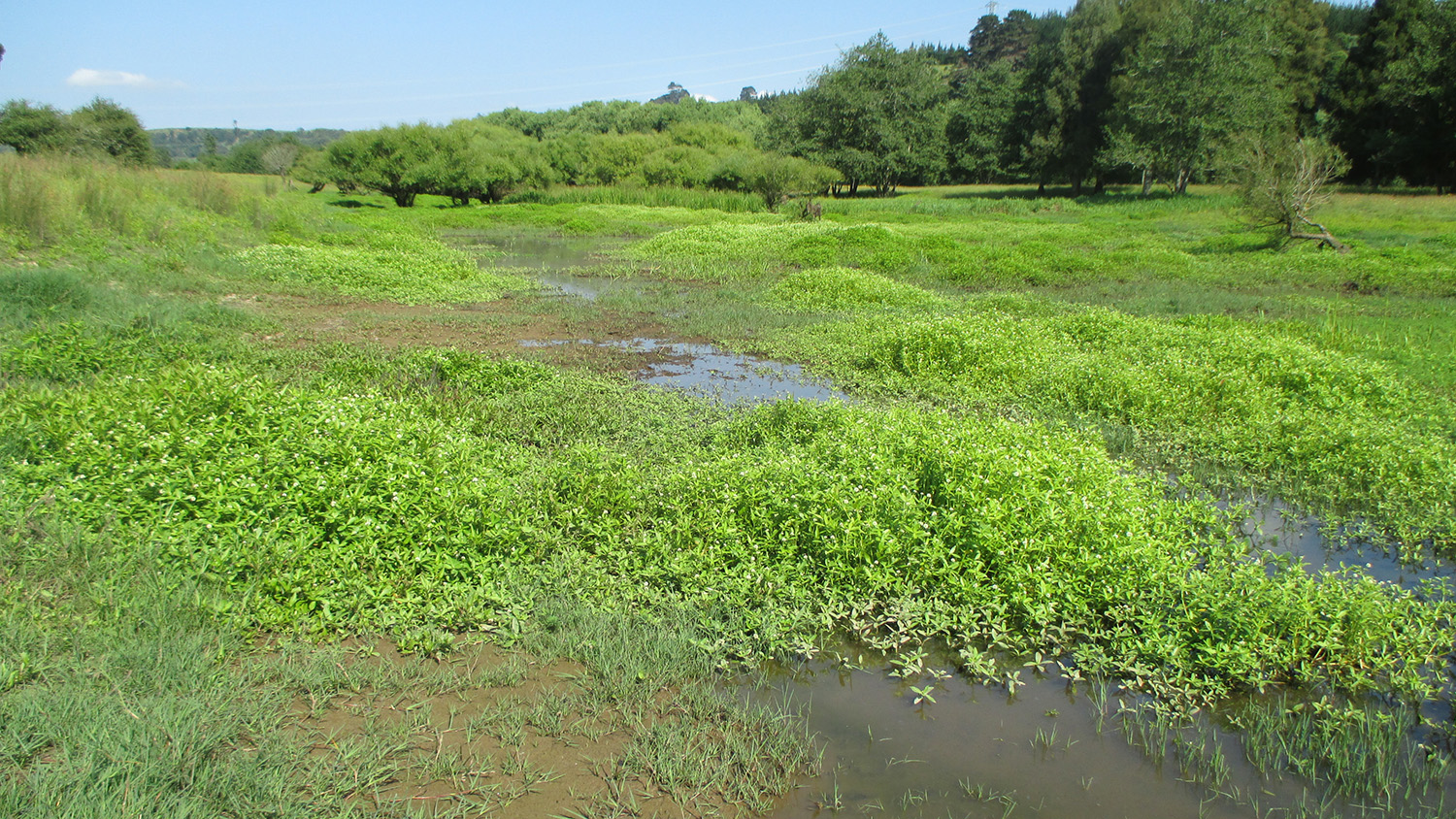| Management programme |
| Progressive containment |
| Objectives |
| To contain and where practicable progressively reduce the geographic distribution or extent of alligator weed within the Waikato region to pre-2022 levels. |
| Impacts |
| Economic, biodiversity, water quality/quantity, amenity/recreation, animal welfare |
Alligator weed, a low-growing non-woody perennial plant, is an invasive pest plant that is easily spread but very costly to control. Originally from Brazil, it is thought to have arrived accidently in New Zealand in the early 1900s and has now spread to parts of northern New Zealand.
Fast growing, it’s able to grow on both land and on water where it forms dense floating mats. It’s tolerant of brackish sites when growing in flowing waterways. Where it invades it can block waterways, aggravating flooding and impeding access. In pasture, it can out compete more favourable plants and be harmful to animals.
In the Waikato region, alligator weed is found mainly at sites on the margins of and in the Waikato River, on the edges of some harbours (e.g. isolated sites in Kāwhia), on farmland, in wetlands, in market gardens and on urban properties. It’s also present at sites along the margins of other waterways, near Waihi and Waikino, and has become a significant problem in new subdivisions in Hamilton city. New sites have recently appeared along some west coast beaches and on the Coromandel Peninsula.
What does it look like?
Alligator weed can be difficult to identify. It is a low-growing, herbaceous perennial which is easy to confuse with two other similar-looking plants that can occur in similar habitats: water primrose (Ludwidgia peploides) and willow weed (Persicaria maculosa). Alligator weed has long horizontal stems (stolons), up to 10m long, that are hollow and often reddish in colour. Coverage can be very compact when growing in clumps on land but more expansive when growing as floating mats on water.
 Flower
Flower
- Clusters of papery white clover-like flowers.
- Flowers from December to March.
Fruit/seed
- No fruit or seeds are produced in New Zealand. Instead, alligator weed easily establishes and spreads aggressively from even the smallest stem fragments.
 Leaves/stems
Leaves/stems
- Dark green waxy leaves, in opposite pairs.
- Pink-reddish, soft, hollow stems (<10m long) that root at nodes.
Similar plants
Water primrose and willow weed look similar to alligator weed, and are often mistaken for it.

|

|
| Water primrose (Ludwigia peploides) | Willow weed (Persicaria maculosa) |
Why is it a pest?
Alligator weed does not set seed in New Zealand but spreads aggressively from even the smallest stem fragments. It can double in area in less than two months.
Alligator weed threatens farms, market gardens and urban properties (often dominating lawns). It clogs waterways and drains, increasing sedimentation and flooding risk. Access to waterways for recreational purposes (boating, fishing) can be blocked, and plants may affect whitebait spawning areas.
It can out-compete pastures and crops, affecting farm production and profit. Although stock will eat it, alligator weed is actually toxic and can cause blindness and other health problems.
The agricultural sector is at increasing risk of alligator weed infestation due to movement of crops and agricultural contracting equipment. Farm owners are urged to have a weed hygiene plan in place to minimise the risk of invasion from alligator weed and other serious pest plants.
Stopping the spread of alligator weed
Alligator weed is extremely difficult to control and easily spread. In addition, there are restrictions on the use of herbicide near waterways. If you see alligator weed on your property, do not cut, treat or remove it. Instead call 0800 800 401 to report it to your local biosecurity pest plant officer.
You can help prevent alligator weed from spreading
Alligator weed can be easily spread by water movement (like floods or tides), soil movement and by equipment such as diggers, farm machinery, eel nets and boats. When disturbed, alligator weed plants breaks up easily into small fragments which can readily regrow. Take special care to not disturb it or transport it to new sites.
- Check boats, trailers, vehicles and equipment for fragments before heading home.
- Check drains on your property regularly.
Farmers should protect their properties from alligator weed and other serious pest plants.
- Insist all contractors practice good weed hygiene and clean their equipment before entering the farm.
- Make sure supplementary feed brought onto the farm is weed free.
- Make sure any aggregates, soil or sand brought onto the farm is weed free.
Restricted places
More information
Advice
For additional information and advice on alligator weed, call our pest plant staff on freephone 0800 800 401.
Publications
The following publications are available for download or from Waikato Regional Council. Contact us to request a copy (freephone 0800 800 401).






